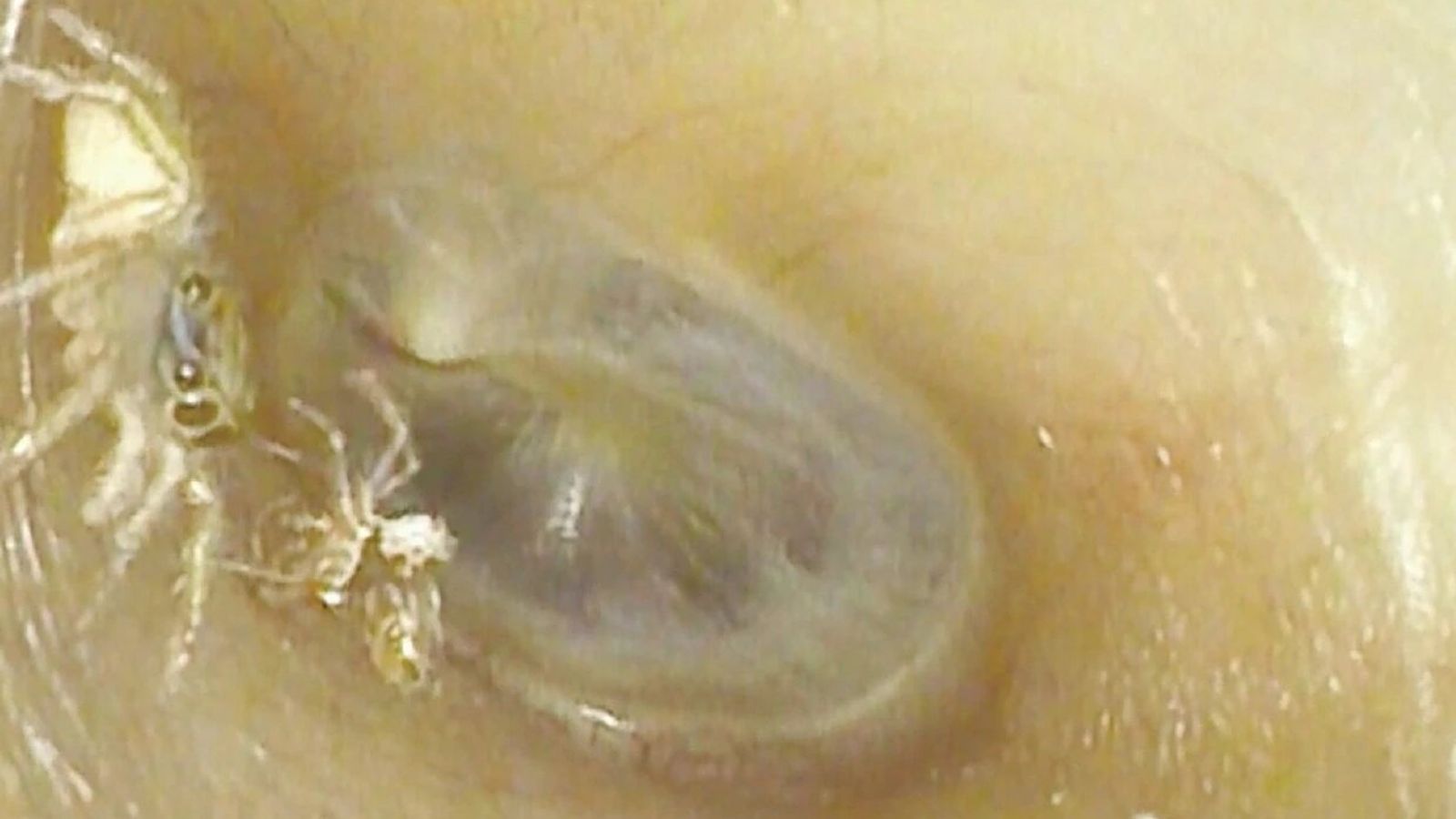A woman went to a clinic after struggling to sleep for days – where doctors found a spider crawling around inside her ear.
The 64-year-old, from Taiwan, felt movement in her left ear for several nights in April, followed by clicking and rustling, before deciding to visit doctors.
Doctors then found a small spider moving around her ear canal upon examination. It had discarded its exoskeleton – otherwise known as its hard body covering – nearby.
Dr Tengchin Wang, director of the otolaryngology department at Tainan Municipal Hospital, told Sky News’ US partner network NBC News doctors then used a tube to suction out the spider and exoskeleton.
He added the woman “didn’t feel pain because the spider was very small” at around two to three millimetres.
But as it was the first case he had seen of an insect moulting inside a human’s ear, he wrote a case report in the New England Journal of Medicine.
Dr Wang also urged the public to get checked if they have the same symptoms.
Just 22 minutes moderate exercise a day can offset negative effects of sitting down, study finds
Should pregnant women still be in prison?
Cervical cancer treatment breakthrough could cut deaths by 35%
Dr David Kasle, a physician at ENT Sinus and Allergy of South Florida, said the image of the insect from Dr Wang’s report was “unusual and disturbing”.
But he added the average ear, nose and throat specialist will see “tens, if not more, of bugs or some sort of arthropod” in patients’ ears over their career.
Read more from Sky News:
Man’s makeshift rubber bumper sparks car bomb panic
‘Escape artist’ tortoise reunited with owner after three years
He said “There’s an extremely sensitive, thin layer of skin that lines the ear canal called the external auditory canal.
“Because of its sensitivity, you’re obviously going to feel the crawling sensation, a tickle sensation that is almost unbearable.”
In the new report, Dr Wang recommended using lidocaine or ethanol to kill larger insects, stopping them from moving and damaging the ear.
But this should be avoided if an eardrum has a hole in it – which may be hard for people to determine on their own.






















